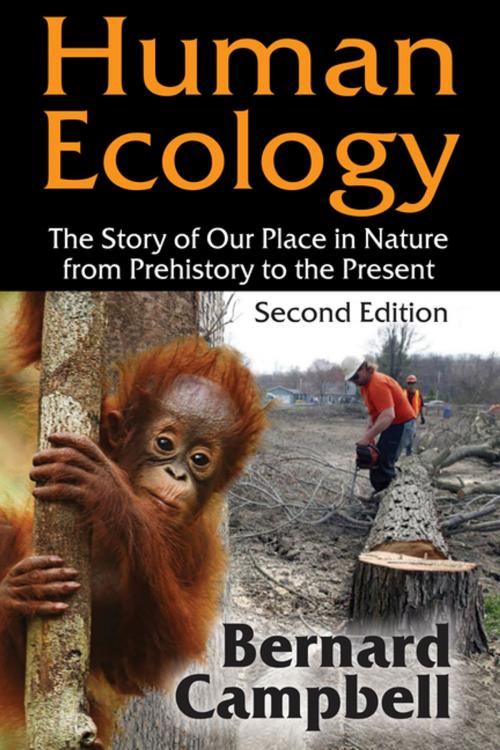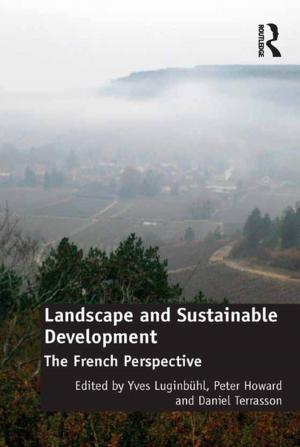Human Ecology
The Story of Our Place in Nature from Prehistory to the Present
Nonfiction, Science & Nature, Science, Biological Sciences, Ecology, Social & Cultural Studies, Social Science, Sociology| Author: | Bernard Campbell | ISBN: | 9781351514507 |
| Publisher: | Taylor and Francis | Publication: | September 8, 2017 |
| Imprint: | Routledge | Language: | English |
| Author: | Bernard Campbell |
| ISBN: | 9781351514507 |
| Publisher: | Taylor and Francis |
| Publication: | September 8, 2017 |
| Imprint: | Routledge |
| Language: | English |
This new edition of a widely adopted primary and supplementary text explores human adaptations to environments over time. It is biologically and culturally sophisticated, drawing on an impressive array of archaeological and paleontological research. Campbell proceeds from earlier, simpler biomes to later, more complex ones, examining selected aspects of the prehistory and history of the human species. Human Ecology offers a succinct introduction to the history of these adaptations within ecosystems: a shared concern among anthropologists, biologists, environmentalists, and the general reader.In the years since this book was first published, the problems that the human species has faced have become more serious. As predicted, world population has rapidly increased, and with it starvation, malnutrition, and disease. Our precious environment is being devastated. In particular, the tropical rain forests, our richest resource, are being cut and burned at an alarming rate with the accompanying degradation of the forest soils. Their flora and fauna, including their human inhabitants, are being destroyed. All this is being done for short-term financial gain without any long-term planning or understanding of the risks involved.There are no simple and humane short-term solutions to the central problem of increasing population pressure. In the long-term, the only hope of making possible a life of quality for all, rather than a life of starvation and squalor, is through education. It is essential that we understand the limits that exist to the earth's productivity and the overriding importance of maintaining richly diversified fauna and flora. If we understand how we arrived at this life-threatening situation, the resolution will become clear. Non-violent and viable solutions do exist and can be implemented, but the human race first must understand and face up to the nature of its frightening predicament.
This new edition of a widely adopted primary and supplementary text explores human adaptations to environments over time. It is biologically and culturally sophisticated, drawing on an impressive array of archaeological and paleontological research. Campbell proceeds from earlier, simpler biomes to later, more complex ones, examining selected aspects of the prehistory and history of the human species. Human Ecology offers a succinct introduction to the history of these adaptations within ecosystems: a shared concern among anthropologists, biologists, environmentalists, and the general reader.In the years since this book was first published, the problems that the human species has faced have become more serious. As predicted, world population has rapidly increased, and with it starvation, malnutrition, and disease. Our precious environment is being devastated. In particular, the tropical rain forests, our richest resource, are being cut and burned at an alarming rate with the accompanying degradation of the forest soils. Their flora and fauna, including their human inhabitants, are being destroyed. All this is being done for short-term financial gain without any long-term planning or understanding of the risks involved.There are no simple and humane short-term solutions to the central problem of increasing population pressure. In the long-term, the only hope of making possible a life of quality for all, rather than a life of starvation and squalor, is through education. It is essential that we understand the limits that exist to the earth's productivity and the overriding importance of maintaining richly diversified fauna and flora. If we understand how we arrived at this life-threatening situation, the resolution will become clear. Non-violent and viable solutions do exist and can be implemented, but the human race first must understand and face up to the nature of its frightening predicament.















